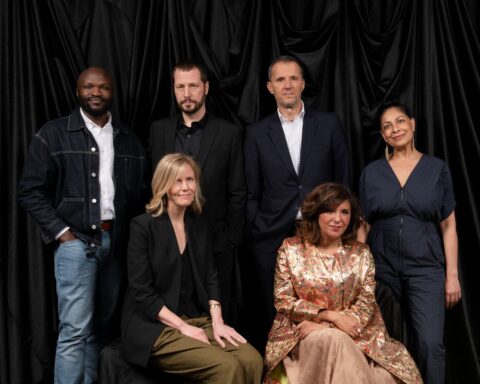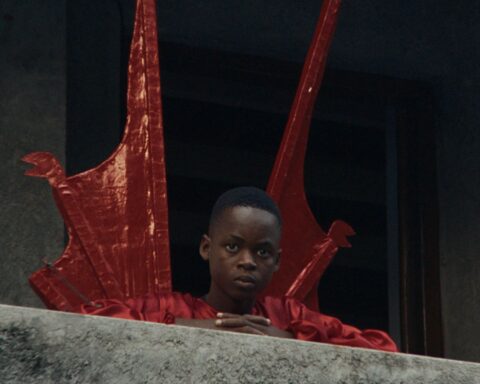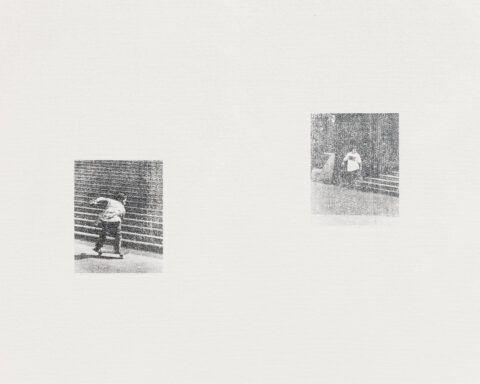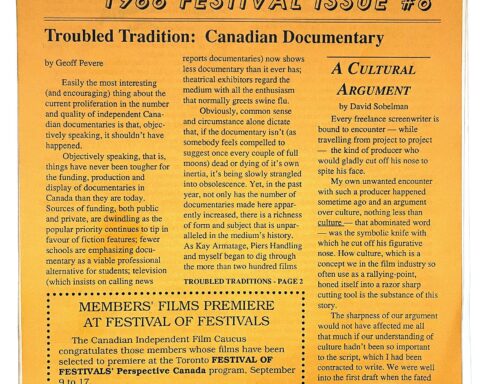The Judge
(Palestine/USA, 82 min.)
Dir. Erika Cohn
Programme: TIFF Docs (World Premiere)
Erika Cohn’s The Judge is a captivating and stirring documentary, which chronicles the story of the first female Sharia judge in the history of the Middle East, Kholoud Faqih. It’s particularly interesting that this documentary, which bares the nuances of Palestinian life and culture, is directed by an American Jewish filmmaker. This combination of cultural diversity and conspicuous female presence on both sides of the camera enlivens the film with riveting and emboldening energy. Once Faqih appears on the screen, she immediately forms a durable connection with the viewer. Seldom does one come across a person, who radiates such charisma, intelligence and rousing confidence.
Having studied law, Faqih had worked as an attorney until she decided to ascend the juridical ranks. When she informed the Chief Justice, Sheikh Tayseer Al-Tamimi about her decision to become a judge, he thought it was a joke. But Faqih was serious as never before. Having supported her choice with lawful evidence and passed the exam with the highest honours, she was appointed a judge in the Sharia Court of Ramallah, the West Bank.
In Palestine, people follow the Hanafi school of Islamic law, which allows women to be judges. In fact, Palestinian women have ruled in the country’s criminal courts since the 80’s. However, Faqih is the first female judge to be appointed in the Sharia court, which deals primarily with domestic and family matters. She argues that it’s only judicious to have a female judge in the Islamic court as domestic situations are incredibly pertinent to women.
“It was important for me because it broke the status quo,” says a female attorney, Reema Shamasheh, commenting of Faqih’s appointment. “It broke the deadlock of confining women to traditional roles.” Faqih has numerous supporters, many of whom are women. Her nonconformity and perseverance resonates with people and embody Palestine’s longing for change. Simultaneously, her story demonstrates the country’s obstinacy against social reforms.
While the media proclaimed Faqih’s career move “revolutionary,” she has had a much less welcoming response from some local authorities. Quite ironically, while Sharia law permits female judges, a few Sharia scholars refuse to accept it. Among them is Dr. Husam Al-Deen Afanah, a recognized Palestinian professor and Islamic scholar. Dr. Afanah is a conservative thinker and a strong believer in gender roles. He debates that women are bound to limited vocations due to their biological susceptibilities. “If she gives birth, if she is pregnant or bleeding, she is bound by these things, which affect her work,” he asserts in his interview. Unsurprisingly, Dr. Afanah has repeatedly criticized the expansion of women’s civil liberties, including Faqih’s advancement as a judge.
Dr. Afanah represents a substantial fraction of Palestinians and has a huge following online. While his interpretations of Islam might contradict some of the actual Sharia laws, he is deeply respected by many. His way of thinking conforms to the traditional ideas about women and femininity, which increases his high esteem in many peoples’ eyes. As the Chief Justice says in his interview, “In our society, traditions are so strong that they overtake the actual Sharia laws.”
Despite the fact that the entire documentary revolves around the Sharia courts, the actual Islamic law is rarely mentioned in the film. Religion has little to do with the antagonistic reaction many have expressed against Faqih’s appointment. As anywhere else in the world, gender roles are deeply entrenched in Palestinian culture. Women are repeatedly stereotyped, and femininity is often perceived as a threat.
According to Faqih, the problem is that society still views women as objects. Such mentality corrupts the justice system, even when it comes to the Islamic law. “Our religious education is shocking. They have a picture of a woman on a Quran verse about Devil. Where does it leave us?”
While the film is culturally specific, its topic is globally ubiquitous. Its narrative quickly escalates beyond tcourtroom drama conventions, offering shocking and distressing revelations. As the story unfolds, The Judge matures into a vigorous social critique of the country’s prevalent chauvinism. It reveals the stories of horrific abuse perpetuated against Palestinian women and reveals the juridical negligence concerning women’s issues. The Judge authenticates the need for women like Faqih in Palestine’s justice system.
While offering an enlightening overview of Sharia law and Islamic feminism, the film doesn’t fail to provide an all-encompassing and uplifting portrayal of Palestine’s people and culture. Cohn films the bustling streets of West bank familiarizing us with the region’s traditions and atmosphere. She takes several street interviews to learn public political sentiments. Cohn then visits the peaceful households of Faqih and Al-Tamimi, images we rarely get to see in the Western media. Through everyday conversations and small court hearings, we learn about the country’s current political landscape and its on-going conflict with Israel.
Cohn masterfully captures the experience of the West Bank to the viewer. Through the story of one woman, she introduces the viewer to a world where modernity and tradition intermix into a beautiful and yet incomplete creation.
In an era doomed by volatility and political duplicity, The Judge’s importance is bound to soar. The film is inimitably educational, offering an eye-opening perspective on the depth of Sharia law while providing a refreshing outlook on Palestine’s people and culture. Most importantly, the film pays tribute to brave, intelligent and inspiring women like Faqih, whose relentless dedication and humanity will help to shape a more inclusive future. Seeing such women in the forefront of cinema brings a much needed sense of fulfillment and joy to this reviewer.










